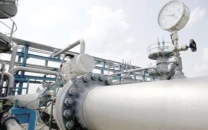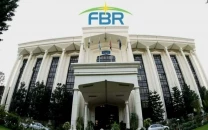CCP seeks cost audit of five sectors
Insists audit will ensure transparency, provide access to credible data

The commission was of the view that any limitation placed on cost audits may promote anti-competitive practices that were detrimental to the public interest. PHOTO: FILE
Reinstating the cost audit would ensure transparency and provide access to readily available and credible cost information for any pertinent government bodies and for making informed and independent decisions in the wider interest of public, according to a policy note that the CCP sent to the Securities and Exchange Commission of Pakistan (SECP).
The policy note was written after the CCP found it hard to discover the actual price of sugar production amid the price hike. There had been no publicly available information about the cost audit of these sectors since 2017.
In 2017, the then government amended the companies’ law and linked the cost audit with recommendation by the regulator of these sectors. Ironically, there is no regulator of these sectors.
FBR closes 310,000 tax audit cases
The CCP seeks restoration of the cost audit of cement, sugar, vegetable ghee and cooking oil, fertiliser and wheat flour sectors.
The commission was of the view that any limitation placed on the cost audit may promote anti-competitive practices that, in essence, were detrimental to the public interest.
The cost and management accountants will also be the beneficiary of the CCP’s move, which will also help the antitrust watchdog to get authentic information about the cost of goods being produced by these sectors.
The SECP has also recently amended the Companies Act 2017 to allow the Institute of Cost and Management Accountants Pakistan (ICMAP) to audit the books of companies having up to Rs10-million paid-up capital. But this has been opposed by the Institute of Chartered Accountants of Pakistan (ICAP).
ICAP was of the view that the cost and management accountants could not be eligible and were not recognised to act as statutory auditors of companies.
ICAP believes that the statutory audit rights around the world are based on the qualification, experience and expertise to conduct the audit.
These rights are only granted to professionals who have gained technical knowledge and competence for conducting a statutory audit by passing advanced-stage audit examinations in the field of audit and getting extensive on-job audit and assurance training. And, the cost and management accountants do not possess this expertise, it said.
Under Section 258 of the Companies Ordinance, the federal government has powers to direct companies to carry out their cost audit.
The Companies Ordinance 1984 was replaced with the Companies Act 2017 and the requirement of issuing a general or special order for cost audit had been omitted.
Now after the amendment, the SECP can order cost audit only if a recommendation is made by the regulator of the relevant sector and there is no regulator of these sectors, making it impossible to perform the cost audit.
The SECP has no more powers to issue orders, requiring yearly cost audit of companies, until it is requested by a sector regulator.
The CCP said various government bodies, that may require readily available and credible cost information, may have to rely on industry players or their associations, instead of an independent third party, with no inherent conflict of interest.
Not only could this negatively impact government decisions, but also public interest at large, it added.
The absence of audited cost accounts in any sector and the reliance on industry associations could lead to exchange of commercially sensitive information at the association’s platform, impacting competition and hurting consumer welfare, said the antitrust watchdog.
The CCP said involving an association for seeking information from its members would be tantamount to legitimising such exchange at the association’s level, but also would also risk use of an association’s platform to enter into prohibited agreements, such as price-fixing, a behaviour universally considered very harmful for competition, and against the public interest.
Ministry of Climate Change seeks performance audit of NDRMF
The potential loss of competitive edge through the sharing of commercially sensitive information can raise the possibility of agreements geared towards collective welfare of firms, at the cost of general consumer welfare ensured by firms competing in terms of economically efficient measures.
There is every possibility for associations that are nothing but a body essentially comprising competing member firms, to manipulate or conceal information to serve their interests as against promoting overall sector competitiveness.
The CCP said when it relied on associations for information, the authenticity of such data would always be doubtful in identifying any patterns of pricing that could potentially raise a red flag in terms of ‘price-fixing’ or other hardcore violations treated as ‘prohibited agreements’ in contravention of Section 4 of the Act.
Published in The Express Tribune, May 12th, 2020.
Like Business on Facebook, follow @TribuneBiz on Twitter to stay informed and join in the conversation.



















COMMENTS
Comments are moderated and generally will be posted if they are on-topic and not abusive.
For more information, please see our Comments FAQ